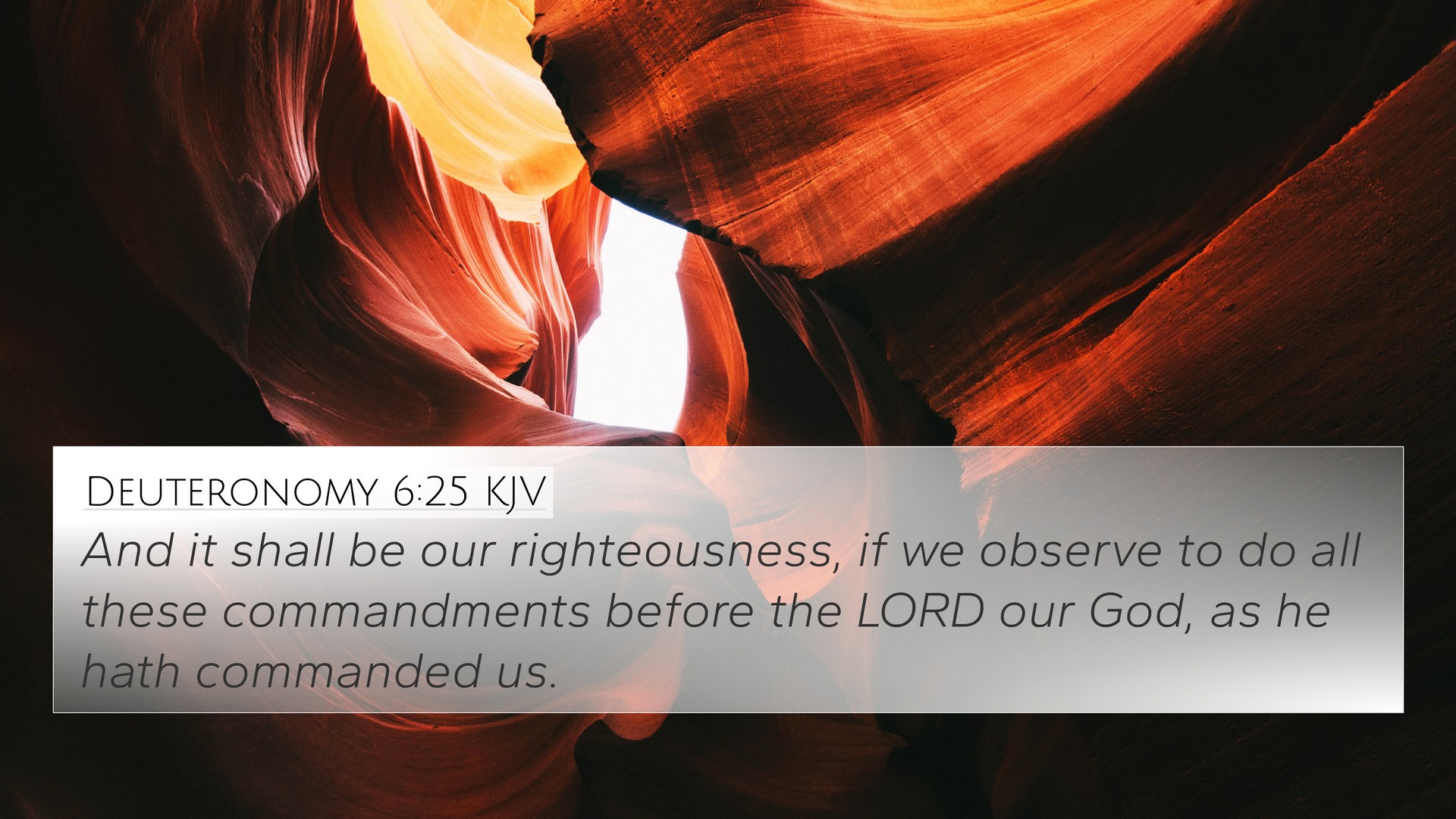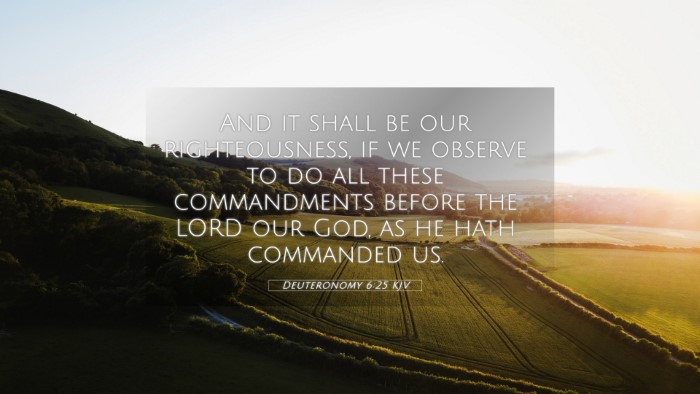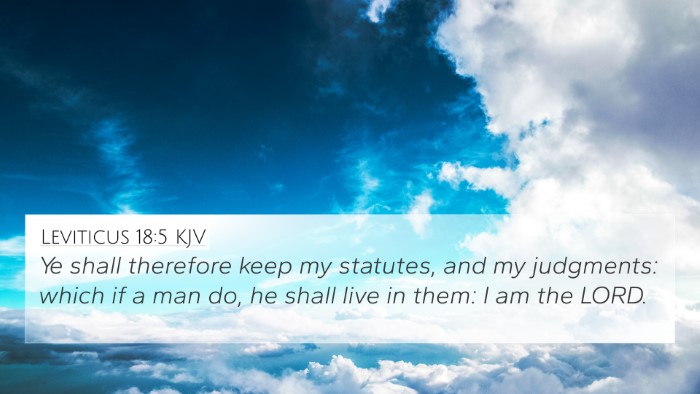Understanding Deuteronomy 6:25
Verse: "And it shall be our righteousness if we observe to do all these commandments before the LORD our God, as he hath commanded us." (Deuteronomy 6:25)
This verse encapsulates the principle of righteousness in the context of obedience to God's commandments. Below is a synthesis of insights drawn from public domain commentaries, providing a deeper understanding of its meaning.
Concept of Righteousness
Matthew Henry's Commentary: Henry emphasizes that the idea of righteousness is closely tied to obedience to God's law. Observing God's commands reflects one’s right standing before Him. Here, righteousness is viewed as a condition of the heart and life, stemming from a commitment to following divine precepts.
Albert Barnes' Notes: Barnes elaborates on the communal aspect of righteousness. He notes that the phrase “our righteousness” implies a collective identity of the Israelites as a covenant people who are expected to uphold God’s statutes as a reflection of their fidelity to Him.
Adam Clarke's Commentary: Clarke interprets this verse in light of the overall covenant between God and Israel, stating that true righteousness is not merely legal compliance but rather a deep-seated desire and striving to live according to God’s will. He further articulates that this obedience serves as a testament to their faith and loyalty.
Cross-Referencing Related Biblical Texts
This verse can be linked to several other scriptures that reflect similar themes of obedience and righteousness:
- Exodus 20:6: "And showing mercy unto thousands of them that love me, and keep my commandments." - Highlights the theme of love manifesting in obedience.
- Leviticus 18:5: "Ye shall therefore keep my statutes and my judgments: which if a man do, he shall live in them: I am the LORD." - A clear connection emphasizing life through adherence to commandments.
- Deuteronomy 30:16: "In that I command thee this day to love the LORD thy God, to walk in his ways, and to keep his commandments and his statutes and his judgments, that thou mayest live." - Encourages adherence to God’s commands as essential for life and well-being.
- Psalms 119:172: "My tongue shall speak of thy word: for all thy commandments are righteousness." - Illustrates the identity of God's commandments with righteousness.
- Matthew 5:6: "Blessed are they which do hunger and thirst after righteousness: for they shall be filled." - Connects the pursuit of righteousness with divine blessing.
- Romans 3:20: "Therefore by the deeds of the law there shall no flesh be justified in his sight: for by the law is the knowledge of sin." - Discusses the relationship between law and the understanding of righteousness.
- Philippians 3:9: "And be found in him, not having mine own righteousness, which is of the law, but that which is through the faith of Christ, the righteousness which is of God by faith." - A New Testament perspective on righteousness derived through faith as opposed to mere observance of the law.
Theological Significance
The theological underpinnings of Deuteronomy 6:25 lay in the foundational belief that righteousness is attainable through God’s commandments. Each of the cross-referenced verses reinforces the idea of a faithful relationship with God that requires active participation in His covenant - a theme that resonates throughout both the Old and New Testaments.
Practical Application
For modern-day believers, the implications of Deuteronomy 6:25 extend beyond mere adherence to laws. It invites reflection on one’s relationship with God, the essence of faith demonstrated through actions, and the communal aspect of righteousness that impacts the broader community of believers.
Conclusion
Deuteronomy 6:25 serves as a reminder that righteousness is inherent in observing God's commandments. Through the insights from various commentaries and the connection it fosters with other scriptures, one can appreciate the depth of biblical righteousness and the continuous thread of divine expectation throughout the Bible.
Further Study and Resources
For those interested in exploring more connections and thematic analyses of biblical texts, the following tools may be beneficial:
- Bible Concordance: A comprehensive tool to find verses and their associations quickly.
- Bible Cross-Reference Guide: Helps identify similar verses across different books.
- Cross-Reference Bible Study: Methods to deepen your understanding by comparing scripture passages.
- Bible Reference Resources: Collections of commentaries and study materials for in-depth exploration.
User Questions
- What verses are related to Deuteronomy 6:25?
- Find cross-references for Deuteronomy 6:25: Look into passages emphasizing obedience and righteousness.
- How does Deuteronomy 6:25 connect with New Testament teachings? Consider verses discussing righteousness through faith.













